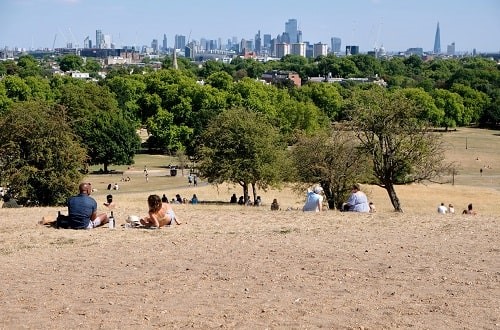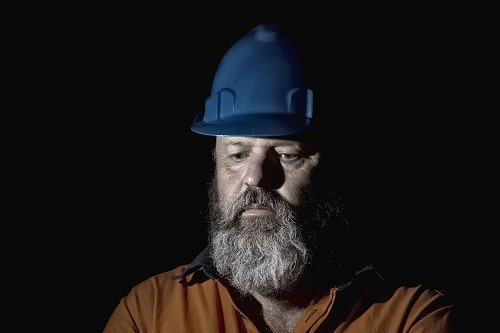As global temperatures continue to increase, heatwaves could claim up to 10,000 lives a year in the UK and cause work-related injuries to spike, a new report by the Environmental Audit Committee (EAC) has warned.
News
UK heatwaves could kill thousands and cause workplace injuries to rise, warn MPs
The cross-party committee of MPs is calling on the government to put in place a national heat resilience plan that prioritises “passive cooling” measures, such as installing external shutters on buildings, coating roofs with reflective white paint and expanding access to green space.
Such measures, said the report, would reduce the need for energy-intensive air conditioning units, which in 2022 and 2023 led to a surge in demand for electricity and the use of coal-fired power stations, contributing further to global warming and exacerbating the problem.
 Heatwaves are predicted to become even more frequent and severe as global temperatures continue to rise. Photograph: iStock/SimonShepheard
Heatwaves are predicted to become even more frequent and severe as global temperatures continue to rise. Photograph: iStock/SimonShepheard
UK temperatures exceeded 40C in 2022 for the first time, and last year was the world’s hottest on record. Heatwaves are predicted to become even more frequent and severe as global temperatures continue to rise.
According to the MPs’ report, the “silent killer” of heatwaves in the UK, without urgent action, could claim up to 10,000 lives annually and severely impact people’s physical and mental health, causing work-related injuries to increase and costing the UK economy £60 billion a year.
“Hot weather impacts mental health by exacerbating the symptoms of psychiatric illnesses, worsening the side effects of medication and increasing suicide risk,” said the report. “It has broader wellbeing effects on the population at large, including sleep deprivation.”
The report also warned of a “net zero tradespeople crisis”, noting that by 2030 it is estimated there will be a shortfall of 250,000 workers in the roles required to carry out a national retrofit programme to make the UK’s buildings cooler.
The Royal Institute of British Architects (RIBA), which provided evidence to the EAC’s inquiry, has echoed the report’s call for action on building retrofits and expanded access to green space. It says it will continue engaging with policymakers to ensure the committee’s recommendations are implemented.
“The built environment is at the heart of our lives, and well-designed buildings and places can enrich and strengthen our communities,” said RIBA senior policy advisor Nell Brown. “But with a backdrop of more severe heatwaves and other worsening climate challenges, we need ambitious measures to ensure buildings and places are resilient and sustainable for future generations.”
Addressing the problem will be challenging, however.
“Tackling overheating at scale will not be a quick or easy undertaking,” said EAC chair Philip Dunne MP. “Clear collaboration between government departments and local authorities is necessary, supported by a clear messaging campaign and a pipeline of funding and skilled retrofitters to undertake the work needed.”
Dr. Radhika Khosla, an associate professor at the University of Oxford’s Smith School of Enterprise and Environment who advised the committee, added: “Our hope is that this report helps the UK take action to meet its Global Cooling Pledge commitments and, most importantly, helps to save lives and protect people’s wellbeing while reducing emissions from cooling.”
NEWS

Ramadan: what employers should know about supporting their workforce
By Belinda Liversedge on 18 February 2026
As Ramadan begins this week, UNISON has reminded employers to think about reasonable adjustments for their Muslim workforce’s religious observance such as fasting, prayers, and flexible schedules.

Nearly half of UK workers afraid to flag risks, finds new research
By Belinda Liversedge on 10 February 2026
A significant “silence gap” is threatening UK workplace safety and operational integrity, according to new data released by training provider Mental Health First Aid (MHFA) England.
Sexual misconduct in dentistry: former GDC fellow warns of ‘culture of silence’
By Belinda Liversedge on 05 February 2026
A former General Dental Council (GDC) clinical fellow is calling for a radical shift in how the dental sector manages workplace risk, warning that a “culture of silence” is masking the problem of sexual misconduct in the profession.



